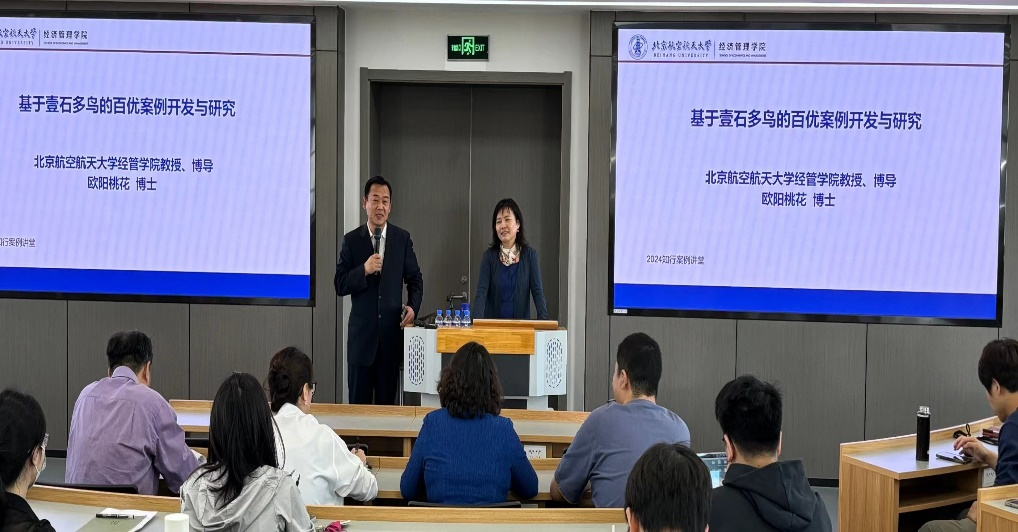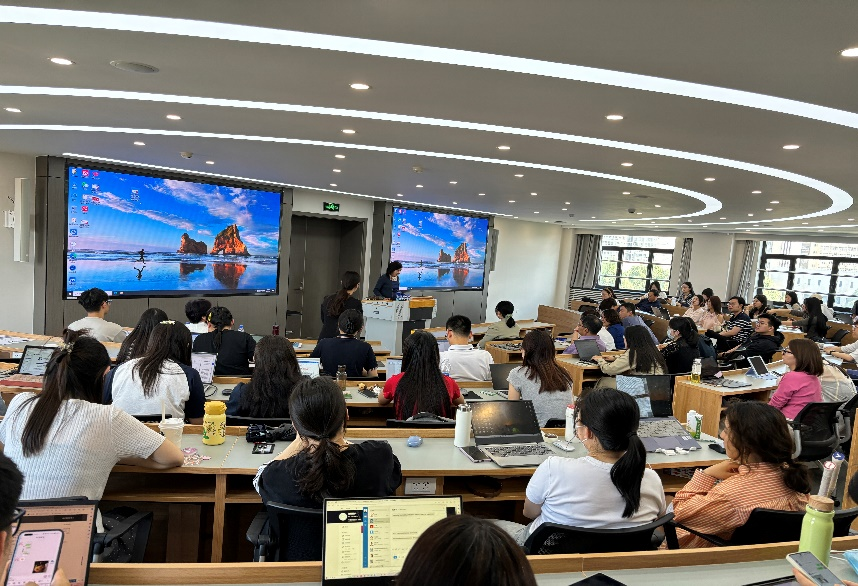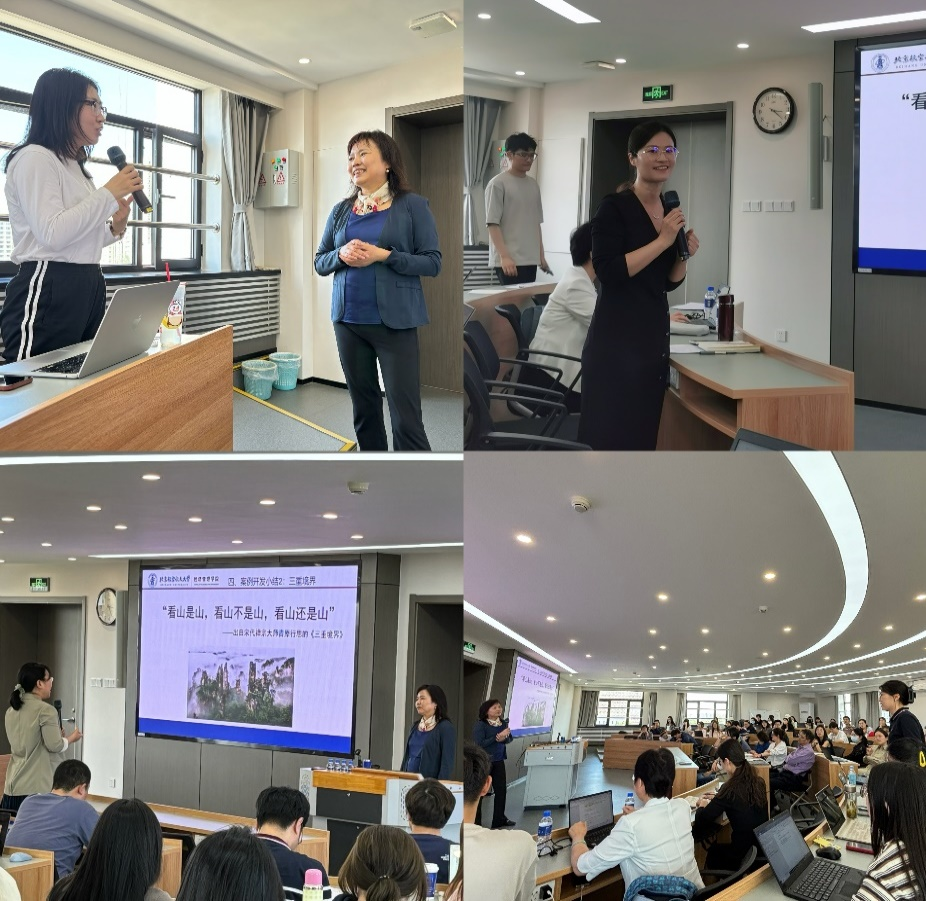The School of Economics and Management held a Zhixing case lecture event: development and research of one hundred outstanding cases
The School of Economics and Management held a Zhixing case lecture event: development and research of one hundred outstanding cases
On the afternoon of May 7, 2024, the first issue of 2024 (the 82nd issue in total) of the Zhixing Case Lecture Hall of the School of Economics and Management was successfully held in Room 821, Siyuan East Building. This event was co-organized by the College Case Center and the Young Teachers Committee. The event invited Professor Ouyang Taohua from the School of Economics and Management of Beihang University to give a presentation entitled "Development and Research of Baiyou Cases Based on One Stone for Many Birds". Qiu Xiaodong, deputy dean of the School of Economics and Management, attended the event and delivered a welcome speech. Zhang Nana, director of the Case Center, presided over the lecture event.

Professor Ouyang Taohua continues to follow China's leading companies, focusing on research topics such as corporate strategic organization, digital transformation, and technological innovation, and has achieved important results in the fields of teaching cases and research cases. Before officially entering the topic of this lecture, Professor Ouyang pointed out that cases, as a good carrier, can be used throughout a teacher's entire career and contribute to the integration of theory and practice. Combining her own teaching and scientific research experience, she told everyone how "cases" run through all aspects of talent cultivation, teaching, research, internal reference writing, and training in her career, and summarized her years of case study experience into four points : Seize a good theme, develop a series of teaching cases, balance teaching and research, and use cases as a carrier to apply for national projects.

Professor Ouyang focused on understanding case development and research, and explained in detail the difficulties and solutions in developing excellent cases.
First of all, Professor Ouyang led everyone to re-understand case development and research from the perspective of how management scholars can implement the contemporary task of constructing philosophy and social sciences with Chinese characteristics, Chinese style, and Chinese style proposed by General Secretary Xi.
Secondly, Professor Ouyang analyzed the difficulties and solutions of excellent case development from four aspects: topic selection, conception, writing and polishing. In terms of topic selection, Professor Ouyang pointed out that the case topic selection should focus on high-quality management innovation practices that have already occurred, are valuable, scarce, and sustainable. He summarized the "5" "not to choose" and discussed it from the perspective of organizational practice. The application of the topic selection canvas is introduced from the four dimensions of , theoretical perspective, management challenges, and solutions. In terms of conceptualizing phenomena, Professor Ouyang pointed out that the process of conceptualizing phenomena is the process of teaching case development, which involves six modules: teaching objectives, case practice, teaching design, theoretical perspective, case text, case analysis/teaching thinking questions . In terms of writing the case text, Professor Ouyang pointed out that the story can be laid out from three lines: timeline, decision-making line, and knowledge line, and how to lay out the story based on the Ruiniu Cultural and Creative Cases and the China Manned Space Engineering Case. After telling the story, Professor Ouyang pointed out that it was time to write the case instruction manual. This stage focused on how to go from a good story to the design of inspiring thinking questions, and introduced four step-by-step question types: paving the way for knowledge points and analyzing knowledge. points, deepen knowledge points, and summarize. After designing the inspiring questions, there are two ways to conduct case analysis: multi-theory case analysis and single-theory case analysis. Professor Ouyang vividly compared the case analysis process to "peeling an onion."
Finally, Professor Ouyang summarized the portraits of excellent cases. She pointed out that the case topic selection should have both tension and focus, the case text should be interesting, the case analysis should have a sense of hierarchy, and the teaching design should reflect the value of the teaching objectives. Professor Ouyang quoted the Song Dynasty Zen master Qingyuan Xingsi's "Three Realms" "Looking at a mountain is a mountain, looking at a mountain is not a mountain, looking at a mountain is still a mountain" as a metaphor for the three realms of case development, and believes that case researchers need to continuously improve their cognitive abilities.

At the end of the lecture, the participating teachers and students had a lively exchange and discussion with Professor Ouyang on various problems and difficulties existing in the case development process. Finally, the lecture ended with warm applause from the teachers and students present, and this Zhixing case lecture ended successfully.









